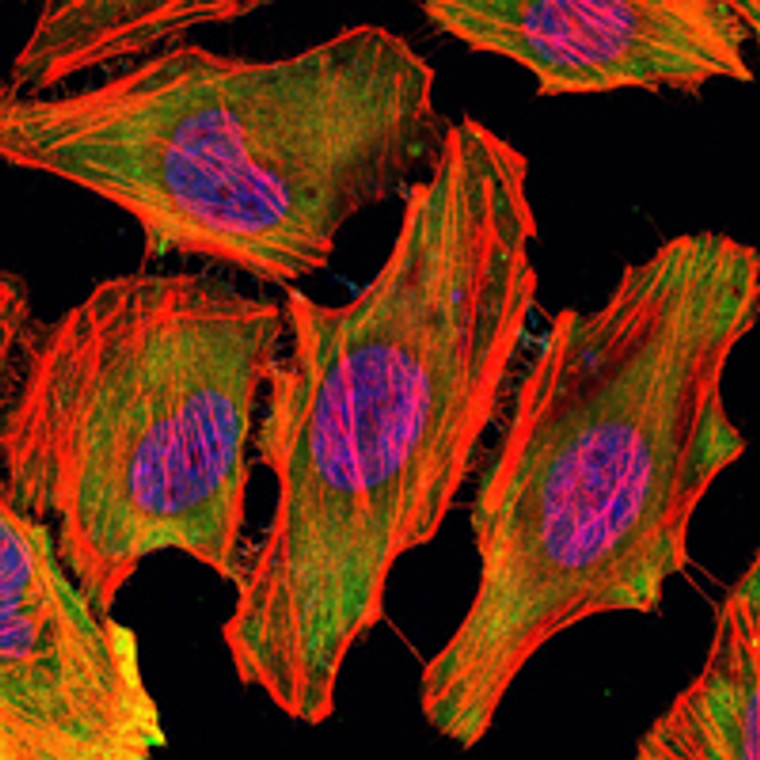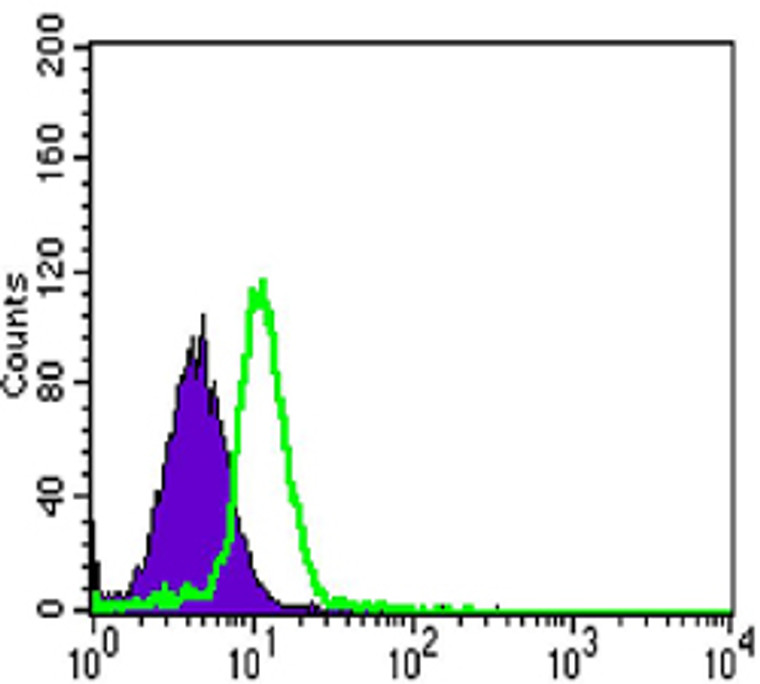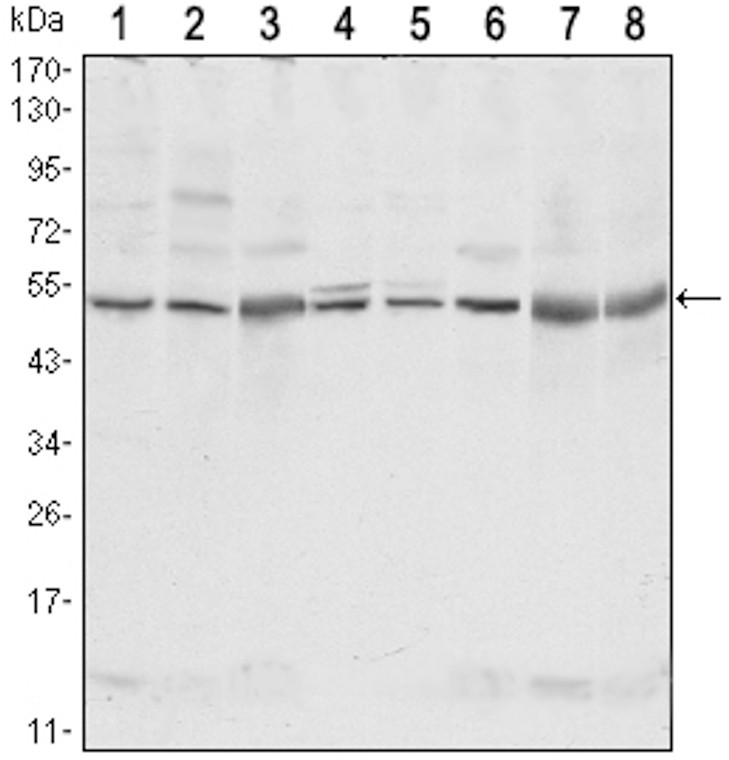General Info
| Host: | Mouse |
| Applications: | WB/IF/FC/ELISA |
| Reactivity: | Human/Mouse/Rat/Monkey |
| Note: | STRICTLY FOR FURTHER SCIENTIFIC RESEARCH USE ONLY (RUO). MUST NOT TO BE USED IN DIAGNOSTIC OR THERAPEUTIC APPLICATIONS. |
| Short Description: | Mouse monoclonal antibody anti-Tyrosine-protein kinase CSK is suitable for use in Western Blot, Immunofluorescence, Flow Cytometry and ELISA research applications. |
| Clonality: | Monoclonal |
| Clone ID: | 5F3 |
| Conjugation: | Unconjugated |
| Isotype: | IgG1 |
| Formulation: | Liquid in PBS containing 0.03% Sodium Azide, 0.5% BSA, 50% Glycerol. |
| Purification: | Affinity purification |
| Dilution Range: | WB 1:500-1:2000IF 1:200-1:1000FC 1:200-1:400ELISA 1:10000 |
| Storage Instruction: | Store at-20°C for up to 1 year from the date of receipt, and avoid repeat freeze-thaw cycles. |
Information
| Gene Symbol: | CSK |
| Gene ID: | 1445 |
| Uniprot ID: | CSK_HUMAN |
| Specificity: | Csk Monoclonal Antibody detects endogenous levels of Csk protein. |
| Immunogen: | Purified recombinant fragment of human Csk expressed in E. Coli. |
Description
| Post Translational Modifications | Phosphorylated at Ser-364 by PKA, leading to increased activity. Autophosphorylated. |
| Function | Non-receptor tyrosine-protein kinase that plays an important role in the regulation of cell growth, differentiation, migration and immune response. Phosphorylates tyrosine residues located in the C-terminal tails of Src-family kinases (SFKs) including LCK, SRC, HCK, FYN, LYN, CSK or YES1. Upon tail phosphorylation, Src-family members engage in intramolecular interactions between the phosphotyrosine tail and the SH2 domain that result in an inactive conformation. To inhibit SFKs, CSK is recruited to the plasma membrane via binding to transmembrane proteins or adapter proteins located near the plasma membrane. Suppresses signaling by various surface receptors, including T-cell receptor (TCR) and B-cell receptor (BCR) by phosphorylating and maintaining inactive several positive effectors such as FYN or LCK. |
| Protein Name | Tyrosine-Protein Kinase CskC-Src KinaseProtein-Tyrosine Kinase Cyl |
| Database Links | Reactome: R-HSA-180292Reactome: R-HSA-202427Reactome: R-HSA-354192Reactome: R-HSA-389948Reactome: R-HSA-5674135Reactome: R-HSA-6802946Reactome: R-HSA-6802948Reactome: R-HSA-6802952Reactome: R-HSA-6802955Reactome: R-HSA-9013407Reactome: R-HSA-9649948Reactome: R-HSA-9656223Reactome: R-HSA-9706369 |
| Cellular Localisation | CytoplasmCell MembraneMainly CytoplasmicAlso Present In Lipid Rafts |
| Alternative Antibody Names | Anti-Tyrosine-Protein Kinase Csk antibodyAnti-C-Src Kinase antibodyAnti-Protein-Tyrosine Kinase Cyl antibodyAnti-CSK antibody |
Information sourced from Uniprot.org
12 months for antibodies. 6 months for ELISA Kits. Please see website T&Cs for further guidance






